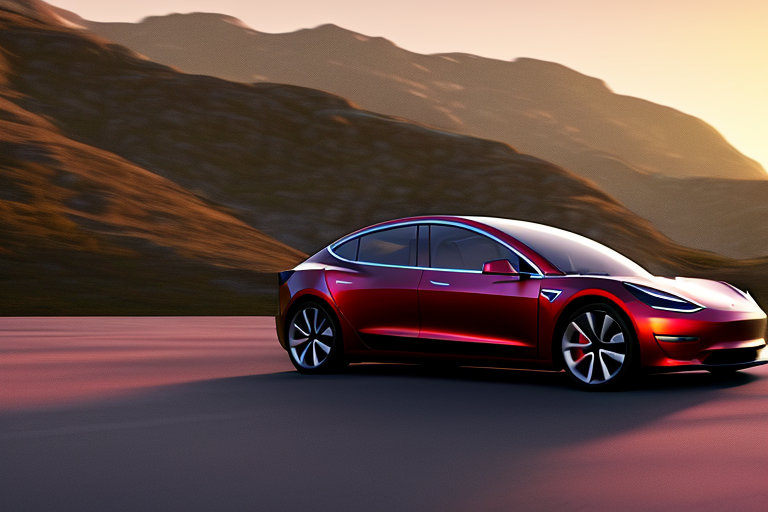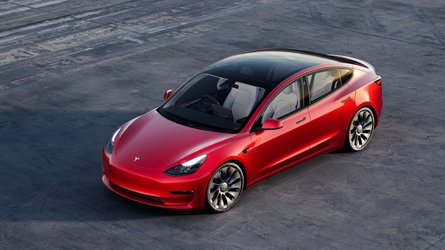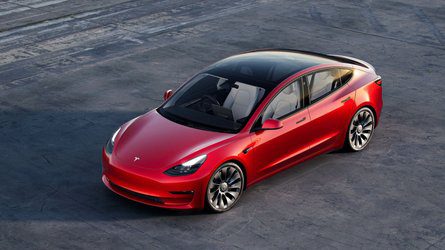Tesla recently noted on its website that the entry-level Tesla Model 3 might soon not be eligible for the full $7,500 federal tax credit. The company wrote that the “$7,500 tax credit is anticipated to be reduced for Model 3 [rear-wheel drive version] by March 31,” encouraging customers to take delivery before that will happen.
The issue with the Tesla Model 3 RWD is that it’s equipped with batteries sourced from China. As far as we know, these are prismatic lithium-ion LFP cells from CATL. Other Tesla Model 3 and Tesla Model Y are equipped with locally produced, cylindrical lithium-ion cells (NCA/NCM chemistry). This is important because the Inflation Reduction Act of 2022 (IRA) requires that, as of 2023, 40 percent of the value of critical minerals need to be mined or processed in the United States (or FTA countries), or recycled in North America. Additionally, 50 percent of the value of battery components must be manufactured or assembled in North America. Those requirements will increase in the following years, as shown in an outstanding Fact Sheet IRA EV Tax Credits, released by Electrification Coalition and SAFE.
If the Tesla Model 3 RWD’s battery (LFP) does not meet one of the requirements, the federal tax credit will be reduced from $7,500 to $3,750. If both requirements are not met, then the vehicle will not be eligible for any tax credit. We don’t know the details, but if Tesla says that a reduction is anticipated, then probably one of the requirements will be met, and the entry-level version will be eligible for $3,750.
Other requirements for new cars concern the price and income: MSRP limits: SUVs, vans, pick-up trucks: $80,000 Other Vehicles (cars): $55,000 Income limits for different tax statuses: Single: $150,000 Head of HH: $225,000 Filing jointly: $300,000
A lower incentive for the Tesla Model 3 RWD will undermine its competitiveness – both against other BEVs and the higher-trim Model 3 Long Range AWD, which is sometimes available through existing inventory (it’s promised to be available via standard orders this year). There is a big chance that Tesla might reduce the price of the Tesla Model 3 RWD in April, or finally reintroduce the Tesla Model 3 LR AWD.
The Inflation Reduction Act of 2022 (IRA) has set forth certain requirements for electric vehicles (EVs) to qualify for a tax credit of up to $7,500. If these requirements are not met, then the vehicle will not be eligible for any tax credit. The Tesla Model 3 RWD is equipped with batteries sourced from China and may not meet one or both of these requirements. If this is the case, then the federal tax credit will be reduced from $7,500 to $3,750.
In addition to meeting the IRA requirements, new cars must also meet certain price and income limits. SUVs, vans, and pick-up trucks must have an MSRP of $80,000 or less while other vehicles must have an MSRP of $55,000 or less. Income limits vary depending on tax status.
The lower incentive for the Tesla Model 3 RWD could potentially reduce its competitiveness against other BEVs and higher-trim models. To combat this, Tesla may reduce the price of the Tesla Model 3 RWD in April or reintroduce the Tesla Model 3 LR AWD. Until then, customers should take delivery before March 31st to ensure they receive the full $7,500 federal tax credit.
FAQ
Q1: Are electric car batteries recyclable?
A1: Yes, electric car batteries are recyclable.
Q2: Are electric car chargers free?
A2: It depends on the charger and the location. Some electric car chargers are free, while others may require a fee.
Q3: Can electric car batteries be rebuilt?
A3: Yes, electric car batteries can be rebuilt with the right tools and knowledge.












